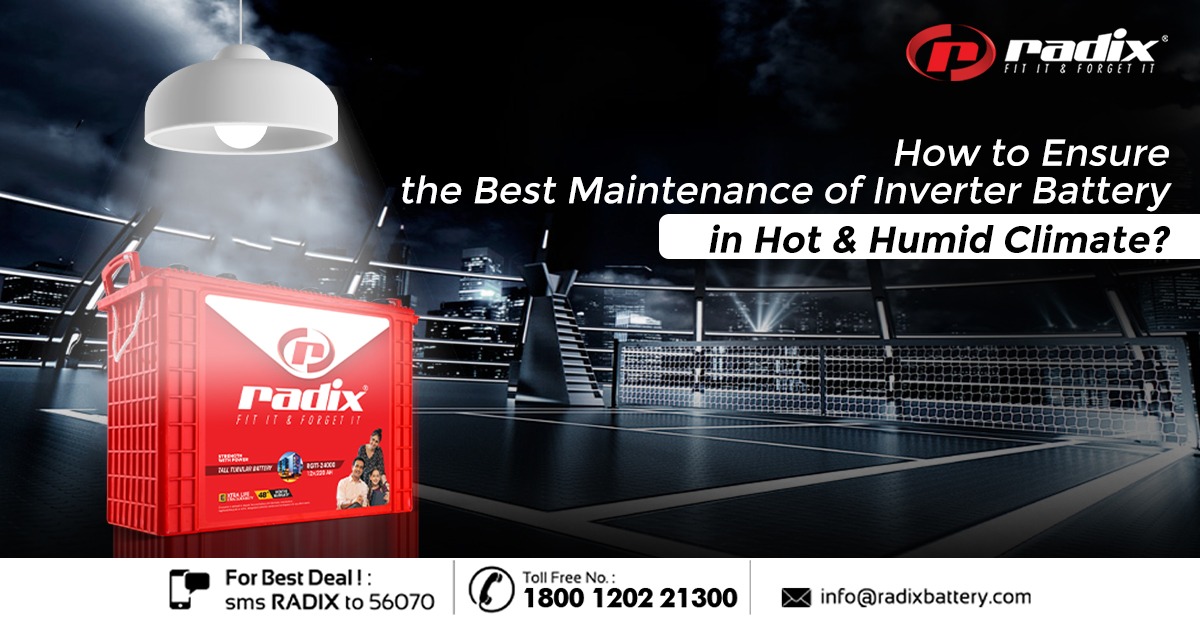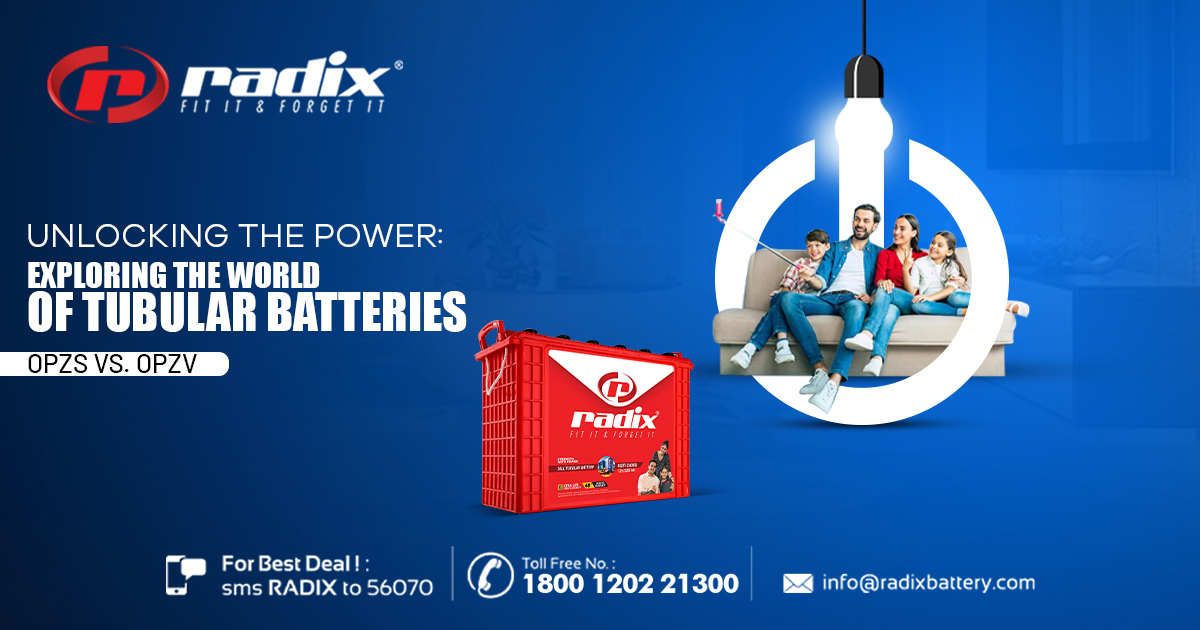In today’s world, having a reliable power backup solution is no longer a luxury but a necessity. Power outages can disrupt your daily life, halt household activities, and impact work or education in the age of remote jobs and online learning. This is where Radix Inverter Batteries step in, providing a dependable source of backup power to keep your home running smoothly. Investing in a high-quality inverter battery system is one of the best decisions you can make for your home, and Radix Batteries ensure that you are choosing a durable, efficient, and long-lasting solution.
Here are six reasons why Radix Inverter Batteries are a wise investment for your home:
1. Uninterrupted Power Supply
The most immediate benefit of an inverter battery system is uninterrupted power during outages. Radix Inverter Batteries ensure that your home stays powered, keeping essential appliances like lights, fans, refrigerators, and even electronics like computers and televisions running smoothly. With Radix, you can say goodbye to the inconveniences and discomfort that come with unexpected blackouts. Whether you live in an area prone to frequent outages or face occasional interruptions, a Radix Inverter provides peace of mind and seamless backup power.
2. Durability and Long Life
Radix Inverter Batteries are built to last. Unlike cheaper alternatives, Radix focuses on delivering long-lasting, durable batteries that can withstand frequent usage over time. The robust design and high-quality components used in Radix batteries ensure they can endure regular charging and discharging cycles without compromising performance. By investing in a Radix Inverter Battery, you are securing a solution that will serve your home reliably for years.
3. Cost-Effective Power Solution
One of the major concerns homeowners face with power backup systems is the ongoing cost of operation. Fortunately, Radix Inverter Batteries are an affordable power solution in the long run. These inverter systems are highly energy-efficient and consume minimal electricity while charging, ensuring that your utility bills remain low. Plus, with their long lifespan, you save money on frequent replacements, making Radix batteries an economical choice for homeowners.
4. Low Maintenance
Unlike traditional power generators, which require constant refueling and regular servicing, Radix Inverter Batteries are virtually maintenance-free. Apart from basic checks, such as keeping the terminals clean and ensuring proper ventilation, there’s little you need to do to maintain your Radix battery. This hassle-free upkeep makes Radix Inverter Batteries an ideal choice for homeowners who want a reliable backup power system without the added burden of constant maintenance.
5. Environmentally Friendly
Radix Inverter Batteries are a much greener alternative to diesel-powered generators, which emit harmful gases and noise pollution. By using an inverter battery system like Radix, you are choosing a cleaner and quieter solution to power your home. The technology used in Radix Batteries is designed to minimize the environmental impact, making them a sustainable choice for conscious consumers. In the age of climate change, this environmentally friendly option is one more reason to choose Radix.
6. Wide Range of Applications
Whether your home has a basic power backup need or a more extensive requirement to support multiple high-power appliances, Radix Inverter Batteries can handle it all. Radix offers a range of inverter batteries that cater to various energy demands, allowing you to choose the best fit for your household. Whether you need to run fans, lights, and kitchen appliances, or power more energy-intensive systems like air conditioners, Radix has the solution for you.
When it comes to investing in a power backup solution, reliability, cost-effectiveness, and longevity are key factors that homeowners look for. Radix Inverter Batteries tick all these boxes and more. They provide an uninterrupted power supply, are built for durability, and require minimal maintenance, making them a smart and long-lasting investment for your home. Plus, their eco-friendly design and wide range of options make them the perfect choice for any household looking to stay powered during outages without breaking the bank.
Choosing a Radix Inverter Battery means choosing peace of mind, affordability, and sustainability for your home.









